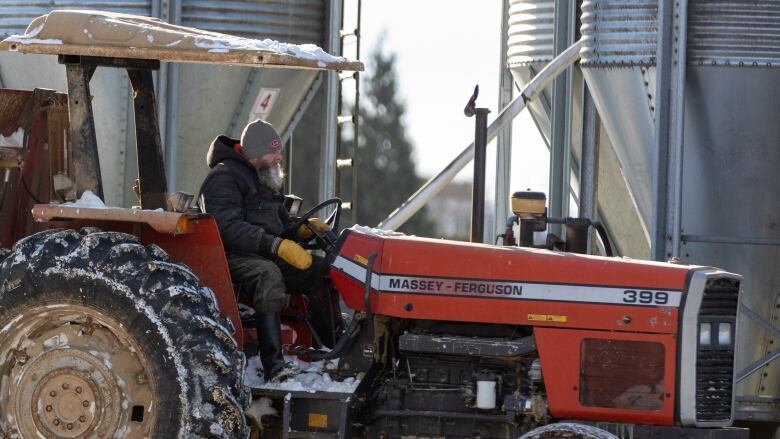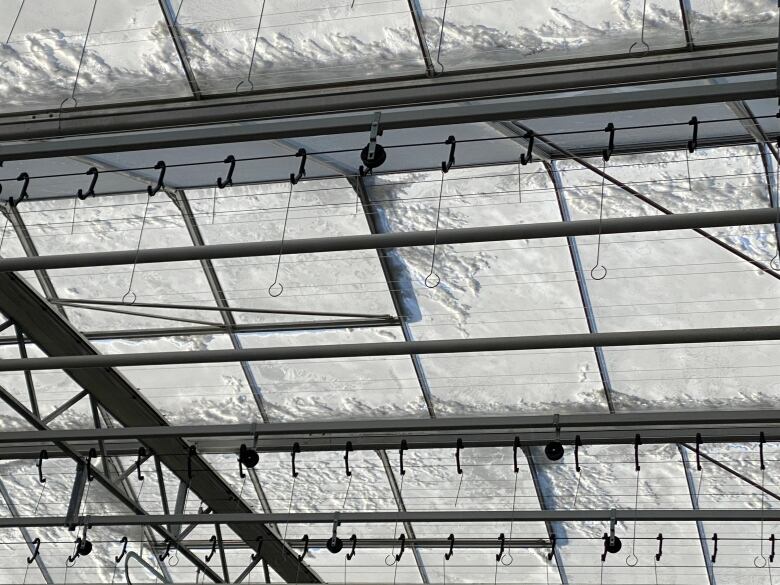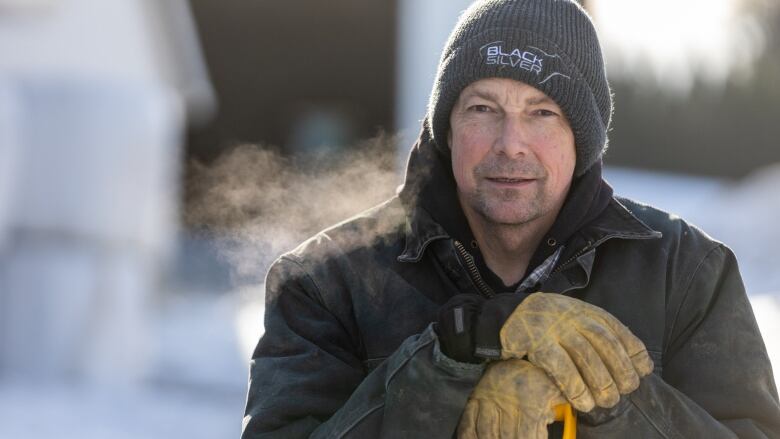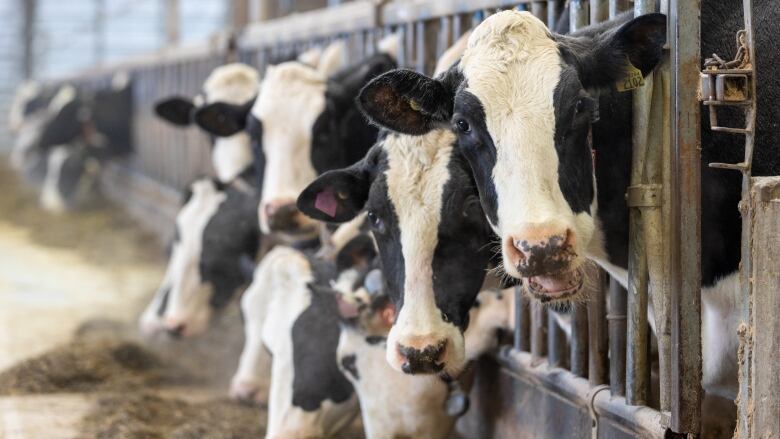Latest extreme cold warnings another hit for B.C. farmers facing brunt of climate change impacts
Heat waves, wildfires and floods have already affected farm output in numerous ways

Our planet is changing. So is our journalism. This story is part of a CBC News initiative entitled Our Changing Planet to show and explain the effects of climate change and what is being done about it.
British Columbia's farmers are trying their best to cope as record-breaking cold and snowfall affecttheir livelihoodafter a year spentbearing the brunt of natural disasters in the province.
Environment Canada issued extreme weather warnings for most of British Columbia on Tuesday,saying the province's historic cold snap will likely continue until the end of the week.
The warnings come at the end of a tumultuous year for the province, which saw deadly heat waves and the third-worst wildfire season on record in the summer. Most recently, devastating floods led to widespread damage to infrastructure and crops.
The series of climate disasters hasalready affected the province's farm output in myriad ways from fruit crops "cooking" on the branch during the heat wave to wildfire smoke tainting wine vintages. Now, the latest cold snap is adding even more uncertainty for farmers in the province, according to Stan Vander Waal, presidentof the B.C. Agriculture Council.
"More and more ... the challenges we see as farmers today is dealing with the unknowns," he said. "How do you compensate for these extreme conditions?"
Vander Waalsaidhe'sparticularly concerned aboutthose areas of B.C. thatrecently saw flooding particularly the low-lying Sumas Prairie area east of Abbotsford,which was devastated by floods.
Crops that were underneathstanding water are at risk of "frost kill," where frigid temperatures destroy moisture-laden berries and plants, he said.

Vander Waal said that frost kill "will not reveal itself, unfortunately, until the very spring ... when it gets to the actual fruiting time."
In addition to the risks of frost kill, Vander Waal said thatcustomers are likely to see higher prices onfood products due to ongoing supply-chain issues exacerbated by the floods.
He said he also thinksthat the record-low temperatures will lead to "much higher" gas and electricitybills for those who use greenhouses.
This will affect those who grow flowers and other smaller plants, and will subsequently lead to higher costs for the consumer, Vander Waal said.

Cold affecting dairy production, too
The extreme cold also poses challenges for dairy producers and ranchers, Abbotsford dairy farmer D.R. Vaandrager said.
The recent floods were particularly hard on the province's farm animals. More than 628,000 chickens, 420 dairy cows, 12,000 hogs and 110 beehives were lost due to extensive flood damage, according to B.C. Agriculture Minister Lana Popham.
Vaandragerdid not lose any animals to the floods, but he did lose one cow to the heat.He says that 2021 has taken a huge toll on him, his familyand his cows.

"Everything we've tried to do this year has been a struggle with the weather," he said.
While Vaandrager's cows are used to cold temperatures in January and February, the unseasonably low temperatures in late December are causing concern.
"In the rooms where the [milking machines] are, we always have a heater," he said. "But this year, we need multiple heaters. And even then, every couple hours, everything freezes up."
The long duration of the cold snap has meant Vaandrager has had to stay awake to keep the machines running, even as temperatures and the wind chill have meant it feels like 20 C.

With his whole family helping him run the farm, along withthe numerous challenges that the year has posed, Vaandrager saidthe only thing keeping him sane is his faith.
"If you haven't noticed how small you are in the last six monthsor the last 18 months with COVID, I don't really know what it's gonna take."
With files from Chris O'Neill-Yates and Georgie Smyth













_(720p).jpg)


 OFFICIAL HD MUSIC VIDEO.jpg)
.jpg)



























































































